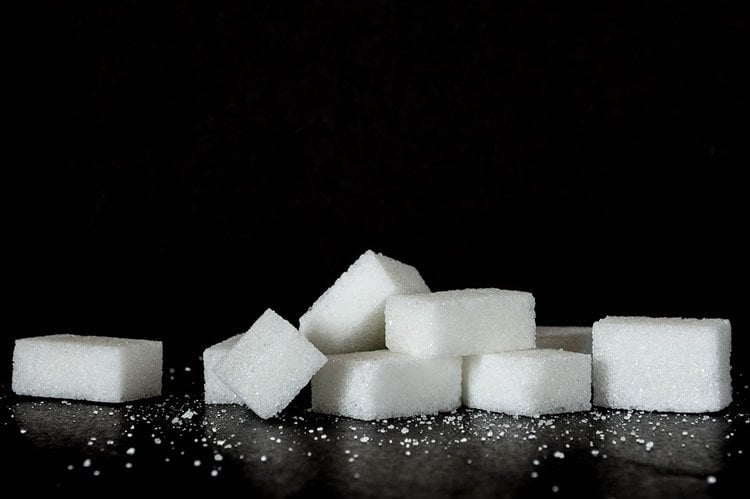Summary: Increasing blood sugar levels in those over 60 helps improve memory and performance, a new study reports.
Source: University of Warwick.
Sugar improves memory in older adults – and makes them more motivated to perform difficult tasks at full capacity – according to new research by the University of Warwick.
Led by PhD student Konstantinos Mantantzis, Professor Elizabeth Maylor and Dr Friederike Schlaghecken in Warwick’s Department of Psychology, the study found that increasing blood sugar levels not only improves memory and performance, but makes older adults feel happier during a task.
The researchers gave young (aged 18-27) and older (aged 65-82) participants a drink containing a small amount of glucose, and got them to perform various memory tasks. Other participants were given a placebo – a drink containing artificial sweetener.
The researchers measured participants’ levels of engagement with the task, their memory score, mood, and their own perception of effort.
They found that increasing energy through a glucose drink can help both young and older adults to try harder compared to those who had the artificial sweetener. For young adults, that’s where it ended, though: glucose did not improve either their mood or their memory performance.
However, older adults who had a glucose drink showed significantly better memory and more positive mood compared to older adults who consumed the artificial sweetener.
Moreover, although objective measures of task engagement showed that older adults in the glucose group put more effort into the task than those who consumed the artificial sweetener, their own self-reports showed that they did not feel as if they had tried any harder.
The authors concluded that short-term energy availability in the form of raised blood sugar levels could be an important factor in older adults’ motivation to perform a task at their highest capacity.

Heightened motivation, in turn, could explain the fact that increased blood sugar levels also increase older adults’ sense of self-confidence, decrease self-perceptions of effort, and improve mood. However, more research is needed to disentangle these factors in order to fully understand how energy availability affects cognitive engagement, and to develop clear dietary guidelines for older adults.
Konstantinos Mantantzis, a PhD student from the University of Warwick’s Department of Psychology, commented:
“Over the years, studies have shown that actively engaging with difficult cognitive tasks is a prerequisite for the maintenance of cognitive health in older age. Therefore, the implications of uncovering the mechanisms that determine older adults’ levels of engagement cannot be understated.”
Dr Friederike Schlaghecken, from the University of Warwick’s Department of Psychology, commented:
“Our results bring us a step closer to understanding what motivates older adults to exert effort and finding ways of increasing their willingness to try hard even if a task seems impossible to perform.”
It is co-authored by PhD student Konstantinos Mantantzis, Professor Elizabeth Maylor and Dr Friederike Schlaghecken at the University of Warwick, UK.
Source: Luke Walton – University of Warwick
Publisher: Organized by NeuroscienceNews.com.
Image Source: NeuroscienceNews.com image is in the public domain.
Original Research: Abstract for “Gain without pain: Glucose promotes cognitive engagement and protects positive affect in older adults” by Mantantzis, Konstantinos; Maylor, Elizabeth A.; and Schlaghecken, Friederike in Psychology and Aging. Published July 12 2018.
doi:10.1037/pag0000270
[cbtabs][cbtab title=”MLA”]University of Warwick”Sugar Improves Memory in Over 60s, Study Suggests.” NeuroscienceNews. NeuroscienceNews, 19 July 2018.
<https://neurosciencenews.com/memory-sugar-aging-9578/>.[/cbtab][cbtab title=”APA”]University of Warwick(2018, July 19). Sugar Improves Memory in Over 60s, Study Suggests. NeuroscienceNews. Retrieved July 19, 2018 from https://neurosciencenews.com/memory-sugar-aging-9578/[/cbtab][cbtab title=”Chicago”]University of Warwick”Sugar Improves Memory in Over 60s, Study Suggests.” https://neurosciencenews.com/memory-sugar-aging-9578/ (accessed July 19, 2018).[/cbtab][/cbtabs]
Abstract
Gain without pain: Glucose promotes cognitive engagement and protects positive affect in older adults
When faced with a cognitively demanding task, older adults tend to disengage and withdraw effort. At the same time, their usual processing preference for positive information disappears. Providing glucose as an energy resource is known to improve cognitive performance and reinstate older adults’ positivity preference. Here, we examined whether glucose can help older adults to exert more effort under high difficulty conditions, and if so, whether such increase is accompanied by a change in positive affect. Fifty-three young and 58 older adults consumed a glucose or a placebo drink and completed a memory-search task at three levels of difficulty. Cognitive engagement was measured through changes in heart rate (HR) and self-reported effort. After each memory-search block, participants completed an implicit emotion-assessment task. In both age groups, glucose produced increased HR (indicating higher task engagement) relative to placebo. In older but not in young adults, glucose also improved cognitive performance and increased positive affect. Subjective effort, in contrast, did not differ between the older-glucose and older-placebo groups. These results suggest that in older adults, glucose improves cognitive performance by promoting higher cognitive engagement while mitigating the subjective costs of effortful exertion.






